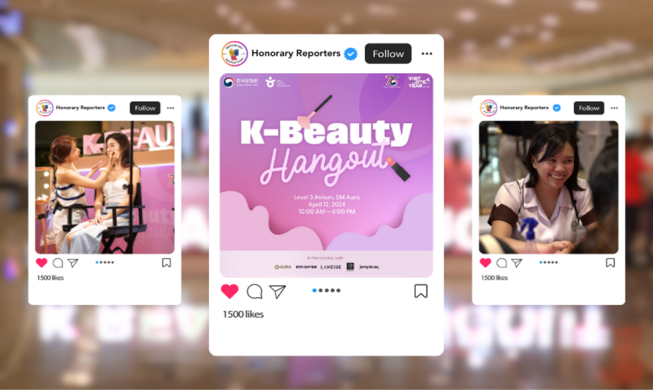-
 Korea.net's 24-hour YouTube channel
Korea.net's 24-hour YouTube channel- NEWS FOCUS
- ABOUT KOREA
- EVENTS
- RESOURCES
- GOVERNMENT
- ABOUT US
- 한국어
- English
- 日本語
- 中文
- العربية
- Español
- Français
- Deutsch
- Pусский
- Tiếng Việt
- Indonesian
|
Monthly KOREA’s July 2020 issue. ▶ Link to Webzine |
Bucket List Worthy
Korean literature has a long and rich history, but was rarely explored in much detail by English-speaking readers until 2016, when the “The Vegetarian” became the first Korean novel to win the prestigious International Booker Prize. Bookworms worldwide have since sought out Korean literature, looking to explore its colorful past, present and future. The following three seminal works have helped shaped the country’s literary landscape and electrified generations of Korean readers.
Written by Tim Alper
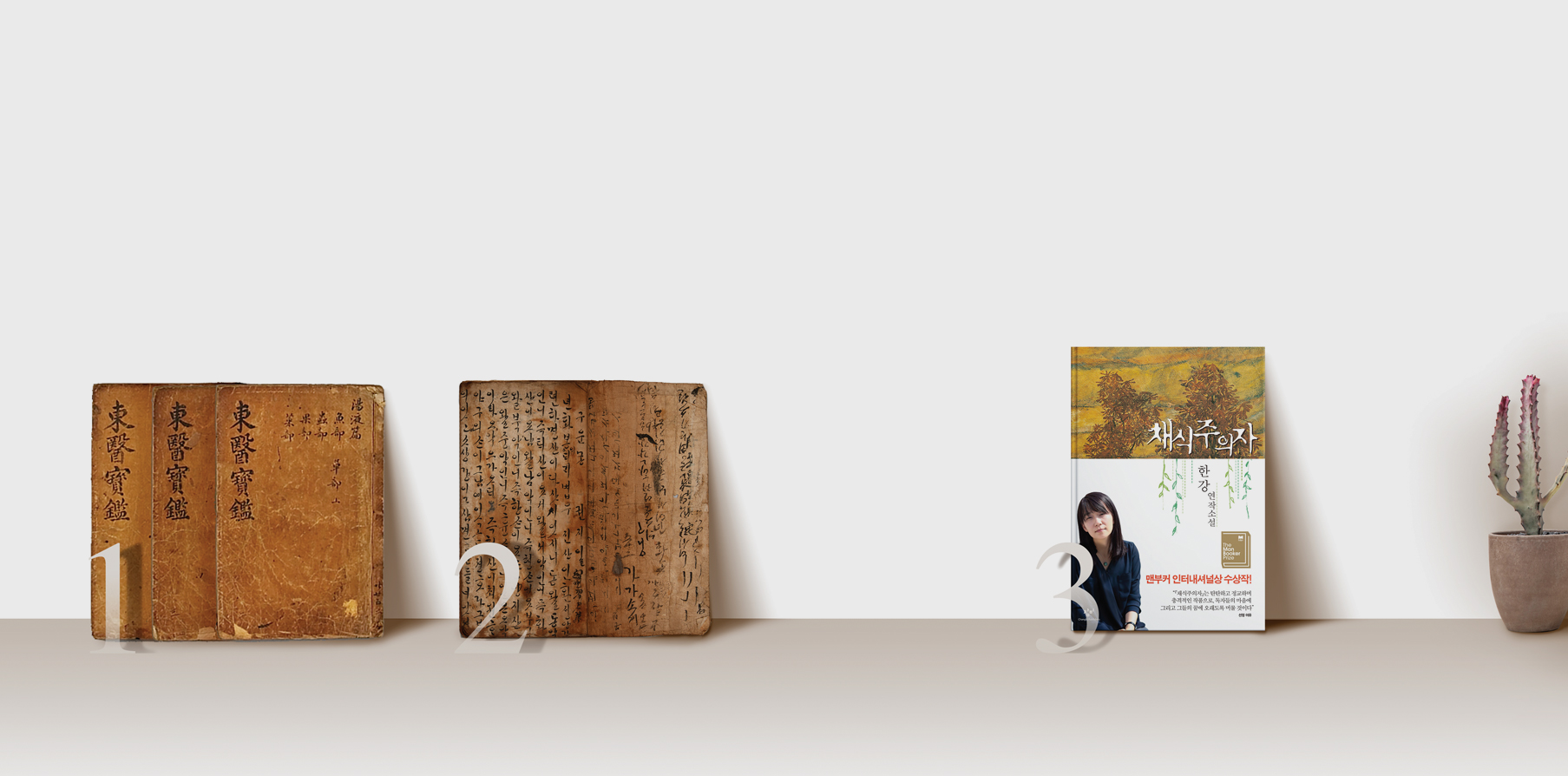
“Donguibogam,” compiled by Heo Jun (circa 1610)
King Seonjo, the 14th monarch of the Joseon Dynasty (1392-1910), commissioned this 25-volume work in 1596 but died before it was completed. Royal physician Heo Jun worked on the book as both editor and author, though scores of doctors were tasked with writing sections on what eventually became an encyclopedic compendium of traditional Korean medicine.
The project was almost abandoned in 1597, when the Japanese attempted to invade Korea. But Heo and his team persisted for over a decade, with the final work seeing the light of day in the early years of the reign of King Gwanghae (1608-23).
Why you should read it : Whether or not you have an interest in traditional Korean medicine — or any form of Oriental medicine, for that matter — “Donguibogam” remains a remarkable literary milestone. Its international recognition came in 2009, when UNESCO added the book to its Memory of the World Program.
This is no dry medical textbook but rather a compendium of insights and thoughts from physicians, as well as philosophical musings and theories about the relationships between humans and the natural world
Because “Donguibogam” is still a cornerstone text for modern practitioners of traditional Korean medicine, those who visit an acupuncturist or have experienced moxibustion will find enlightening the fifth chapter, which focuses mainly on treatment methods. Traditional Korean medicine is intrinsically holistic and sees the body as a single, joined entity, rather than a compilation of mechanical parts. Perhaps most fascinating of all is the book’s extensive chapter on herbal remedies, which reads like a botanical adventure across Korea’s mountains, painstakingly detailing when a whole host of native Korean plants are in season, how to gather them and what their supposed health benefits are.
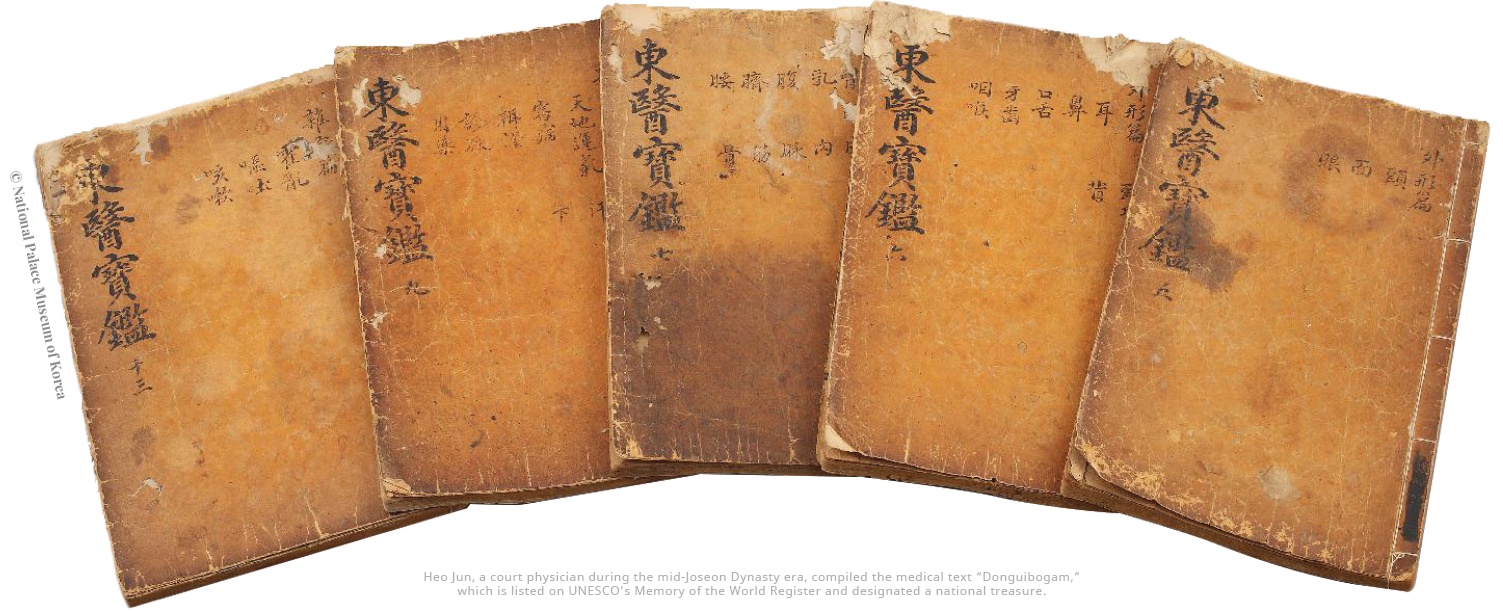
“The Cloud Dream of the Nine,” by Kim Man-jung (circa 1687)
The authorship of this much-cherished book is the subject of scholarly debate, as renowned scholar Kim Man-jung never took credit for writing it. Novel writing was considered almost shameful at a time when more high-minded pursuits were expected of scholars like Kim.
In 2000, the Korean postal service issued a commemorative postage stamp based on the work, and chart-topping pop singer Uhm Jung-hwa named a 2017 album after the novel. Countless Korean dramas and movies have also referenced “Cloud Dream,” with some academics pointing to parallels between the novel and the 2016 Korean blockbuster drama “My Love from the Stars.”
Why you should read it : In the late 17th century, Korea was at a cultural and spiritual crossroads as Daoism, Confucianism and Buddhism permeated everyday life. The three philosophies often clashed but sometimes combined to create new codes for life, adding side roads to Korea’s long spiritual avenue.
As its name implies, “Cloud Dream” is about a shared dream of nine protagonists — a bright apprentice monk and eight women. Their fateful encounter on a bridge one day leads the monk to question his vows, awakening desires he never knew existed. His master punishes him, and both he and the women find themselves reincarnated into very different families. Eventually, they are drawn together and the man becomes a highly successful civil servant, with the women becoming his wives.
But true happiness evades them, something that only really becomes apparent as the novel draws to a close. At this point, the novel — distinctly Buddhist — takes a slightly Daoist turn, and its last few pages remind the reader of the famous dream of the fourth-century Daoist scholar Zhangzi: Once I dreamed I was a butterfly. Now I do not know if I am a butterfly dreaming I am Zhangzi, or Zhangzi, who once dreamed he was a butterfly.
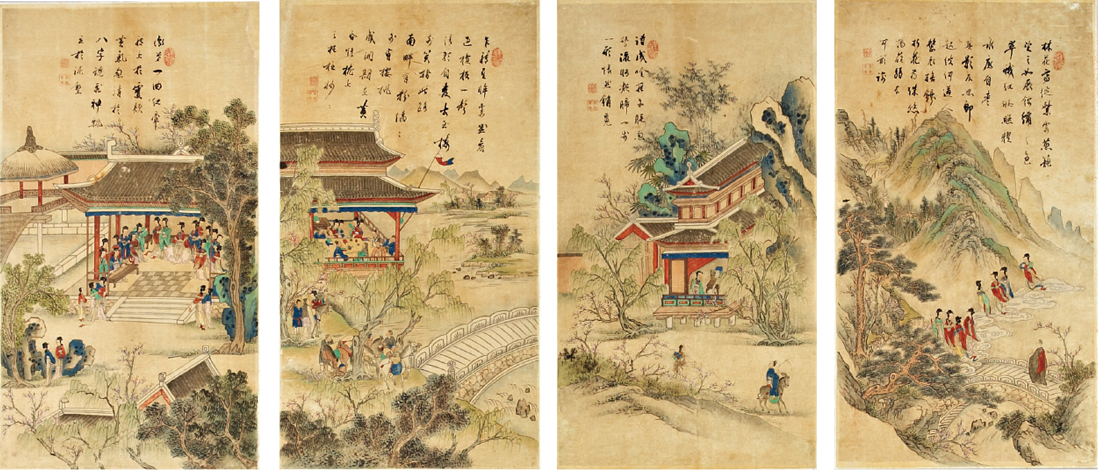
“The Cloud Dream of the Nine,” a 17th-century Korean novel, is considered a masterpiece in Korean literature. © National Museum of Korea
“The Vegetarian,” by Han Kang (2007)
Born in 1970, Han Kang comes from a family of writers. Her father Han Seunwon is one of the most prolific writers of his generation, and her brother Dong Rim is also an author of repute. She first shot to fame in 2005, when she won the Yi Sang Prize for Literature. Two years later, she released “The Vegetarian,” three interlinked novellas about a seemingly unremarkable family that implodes dramatically, crumpling under the pressures of modern life.
The first part of the work originated back in 1997 with a short story, and the 2005 Yi Sang Prize winner, “Mongolian Mark,” is the thought-provoking centerpiece of the three novellas. Upon completion of her work, the author said she felt “Mongolian Mark” had been “detached” but was relieved that it finally “found its place” in the dark world of “The Vegetarian.”
Why you should read it : At the heart of this riveting but sometimes disarming book is a simple, beautiful message about humans and their desire to return to nature. As a people who until very recently lived in harmony with their spectacular natural surroundings, modern Koreans still hanker to escape their comfortable urban apartments to hike in the mountains on weekends for hours on end, longing to be among the trees, flowers and herbs again.
Repressing natural urges and living out of sync with nature are often more difficult for many modern people than they let on. But for the family at the center of this book, these urges spiral out of control, resulting in violence, desire and ultimately despair.
Han Kang’s voice is that of an enraged, erudite femininity. She has rightly become the poster child of a new generation of Korean female writers who are rapidly proving that the Korean literary map of the 21st century will be written predominantly by women.
The book is a moral fable and a light and approachable primer for anyone interested in learning about Korea’s Mahayana Buddhist tradition.
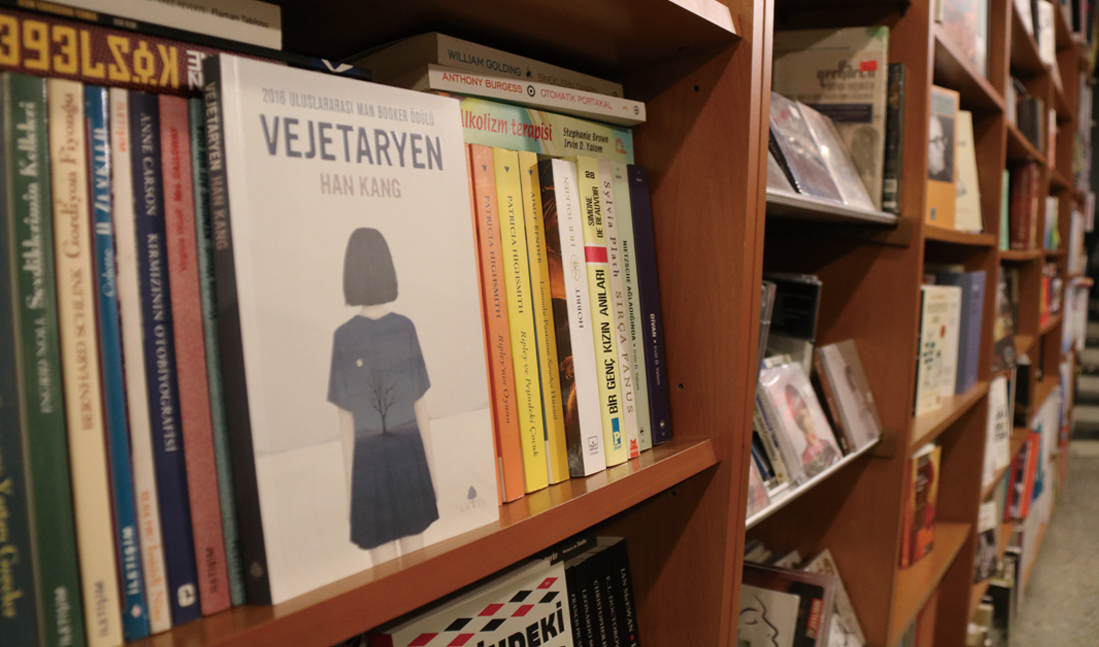
Since winning the Man Booker International Prize in 2016, “The Vegetarian” by Han Kang has been published in 13 languages. © Yonhap News




